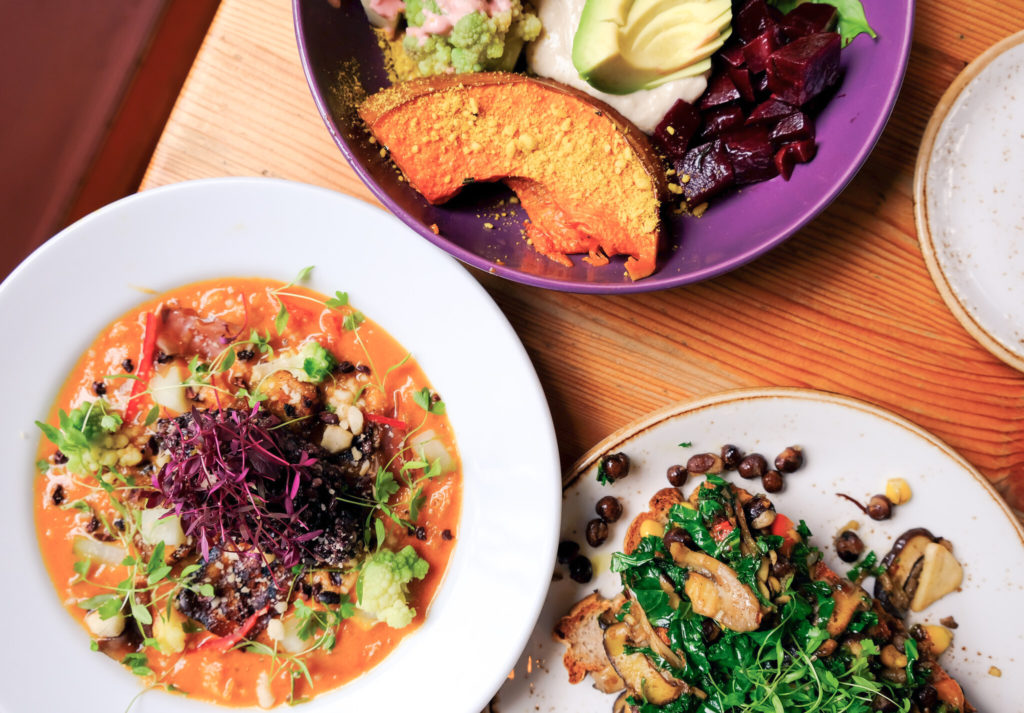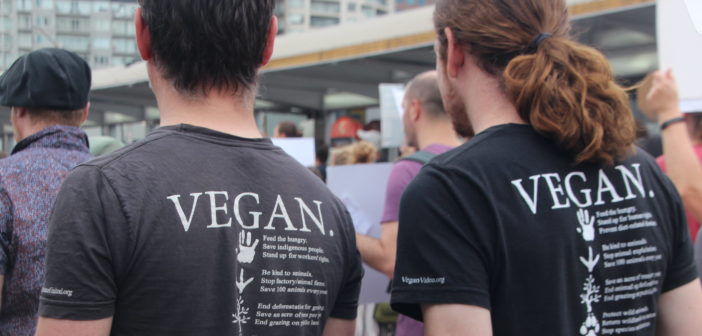Many vegans are looking for the ideal way to make other people go vegan. Often, they are targeting good friends, family, or even their significant other. Not infrequently, they get quite frustrated when their attempts at making these people give up animal products do not result in any significant changes. Below, you’ll find some of my thoughts and tips on this topic.
First, note that I don’t like to think in terms of “convincing” or “converting” others. This kind of language is, I think, not productive. It is not good for people to hear that we want to convert or convince them (people are very resistant to be convinced of something by others, as I discuss below). For this reason, it’s also better for us not to think about our efforts in those terms. In the end, we can’t make other people do anything. But we can influence them in the right direction and help them open their heart and minds.
The term influencing too may bring up a connotation of manipulation or coercion, but in fact influencing is just a very normal thing that no one can avoid doing. Every single human is influencing other humans all the time, implicitly or explicitly, in a positive or negative direction. We shouldn’t be ashamed or wary of trying to influence people in a positive direction, assuming that the influencing is done with integrity, transparency and good intentions.
So, here are some suggestions for effectively influencing other people to move towards veganism or more plant-based eating.

There are many ways to influence others, and many strategies to keep in mind. Image credit Chris Beckett, CC BY-SA 3.0.
1. Ask yourself if it’s worth it
Some people will never be swayed to go vegan in their lifetime, or at least this would require a lot of time and energy. It is possible that this time and energy might be better spent elsewhere. More generally, we can wonder if spending a lot of resources on one-to-one interactions is interesting at all, given that we could also try to change institutions like schools and businesses and local governments. In general, going for institutional change will have much larger potential returns than going for individual change. Of course, some individuals might be very influential in that they have a large reach, or in that they have the decision power to change things within the institution they work in. If your mom is the CEO of a big company, it’s more interesting to try to influence her than if she’s self-employed and doesn’t have a big impact on other people. So, if you can, invest your time in people who are multipliers.
2. Think and put yourself in their shoes
Don’t use a one size fits all approach, but instead adapt your approach to the person or persons in front of you. Try to imagine what it is to be like them. Try to know what they appreciate and what might help them change their hearts and minds. Is it philosophical discussion? Is it good food? Is it just great conversation? Do they have fears about being unhealthy? Do they have allergies and need a practical solution? Do they need to be shown that there are many good alternatives to meat and that eating vegan is not inconvenient?

Cooking a delicious vegan meal for someone might be one great way to influence them. Image credit Ella Olsson, CC BY-SA 3.0.
3. Inform and help
When vegans consider the tools at their disposal, they usually think first and foremost of moral arguments, delivered in the form of a speech, a Youtube video, pamphlet or documentary. You can use all of these, and they might be helpful. But consider that there are many more tools available to you. We can give people many things, in many forms. We can use not only moral arguments (what happens to the animals…) but also other arguments (the environment, health, etc). Or, we can avoid arguments altogether and give them a good taste experience. We can hand them theoretical information (how many trees are cut for meat) or practical information (where to find a great restaurant). And, if you have the ability to make things easier for the person you want to influence by cooking for them or providing food for them, then do so.
In any case, avoid information overload. It’s tempting to always give people more and more information, hoping that this next text, quote, video or photo will be the final drop that changes them. If people keep asking for more, by all means, give them what they want. But most people don’t. Don’t assume that an initial openness or request for information means that they will keep welcoming it, and that they’ll never get tired of it. If they see you as the person who, every time they are close to you, will go on and on about the same topic and can’t shut up about it, they’ll just avoid you.
4. Ask, but don’t ask for all or nothing
It’s always good to give people a concrete suggestion or goal. Don’t present this goal, however, as something they have to do (for ethical or other reasons), but as something that it is good to do. And, know that this goal doesn’t always need to be veganism. While they may not be ready to go vegan, many people may be open to taking some steps. They may want to participate in Meatless Mondays, or Veganuary. Or, they may even be willing to go much further, like not eating animal products during the week, for example. Accept and appreciate these steps, because first of all, they help reduce suffering in and of themselves, and also because they may be steps towards more. Once the initial threshold has been crossed, things get so much easier. Moreover, it’s important to realize that we may not require everyone to go vegan at this stage, and that if only we had enough people who seriously reduce, the vegan world would be right around the corner. It’s just a matter of critical mass and reaching a tipping point.

Give people some time to think and contemplate on their own. This way they will have time to process and will feel in charge of their own decisions. Image credit Simon Powell, CC BY-SA 3.0.
5. Back off and be patient
After you’ve given people enough information that is as tailored as possible, it’s time to get out of the way and be patient. Patience means that you may have to wait months or even years. You may think that you or the animals can’t afford years, but that’s just how it goes. Here’s one hypothesis as to why it is important to back off in time and be patient. Most people are somehow like adolescents: they don’t want to be convinced of important things by others, but want to come to their own conclusions. They also don’t want to give the impression that that they have been convinced by you. This is especially true in situations where there is some kind of (friendly) competition between people (like with siblings, for instance), or where people are stubborn.
It is important to give people a chance to change without it having to appear as if you were the one who changed them. People might not change because they don’t want to appear like that. So, how can we avoid it? If we keep talking and trying to convince them, they don’t have any space to “convert” without appearing as if it is due to us. If we, on the other hand, back off and lay low, chances are that after half a year or so, they feel confident that a change will be (or appear as) the result of their own independent thinking, rather than because of you talking them into it.
At this point, no more proselytizing is needed, but it is useful if you yourself are an example of a nice, friendly, patient, helpful vegan. Someone, in other words, whose example people want to follow. Trust that, at this point, people have the necessary information. You may give a nudge here and there, but as a whole, give people space to change.
Do you have your own successful recipe for influencing people? Let me know in the comments.
Read more about the art of influencing people in my book How to Create a Vegan World.
Featured image: two men in vegan t-shirts at the Melbourne March for Our Future. Image credit takver, CC BY-SA 3.0.





